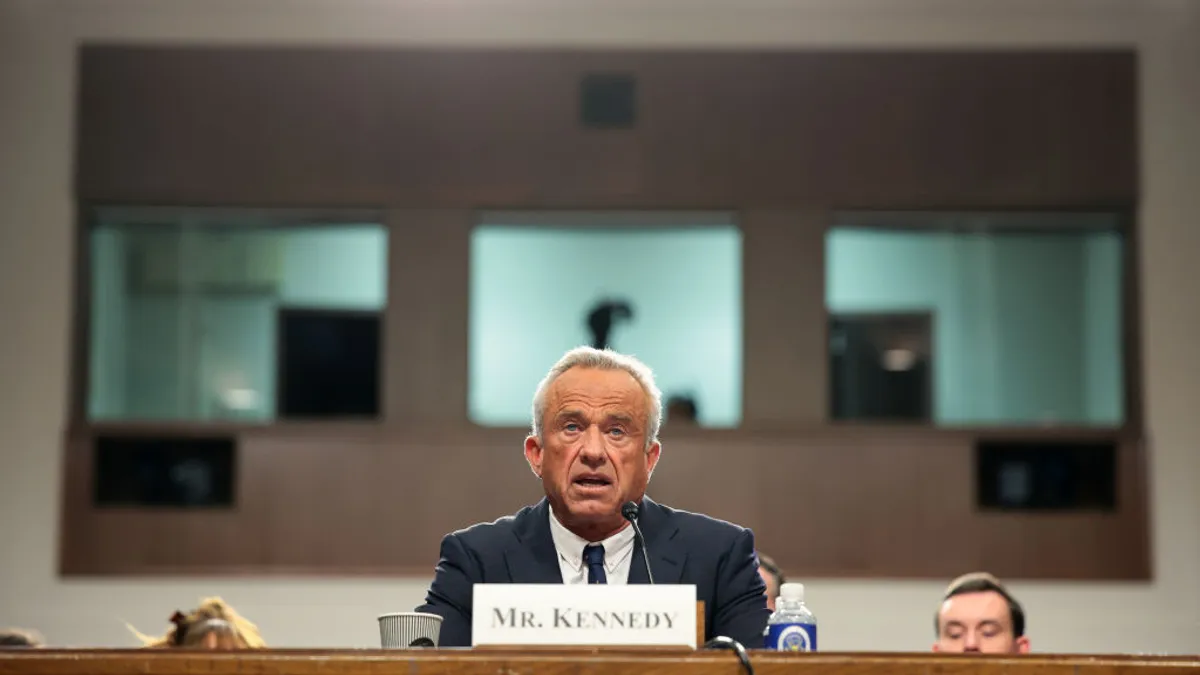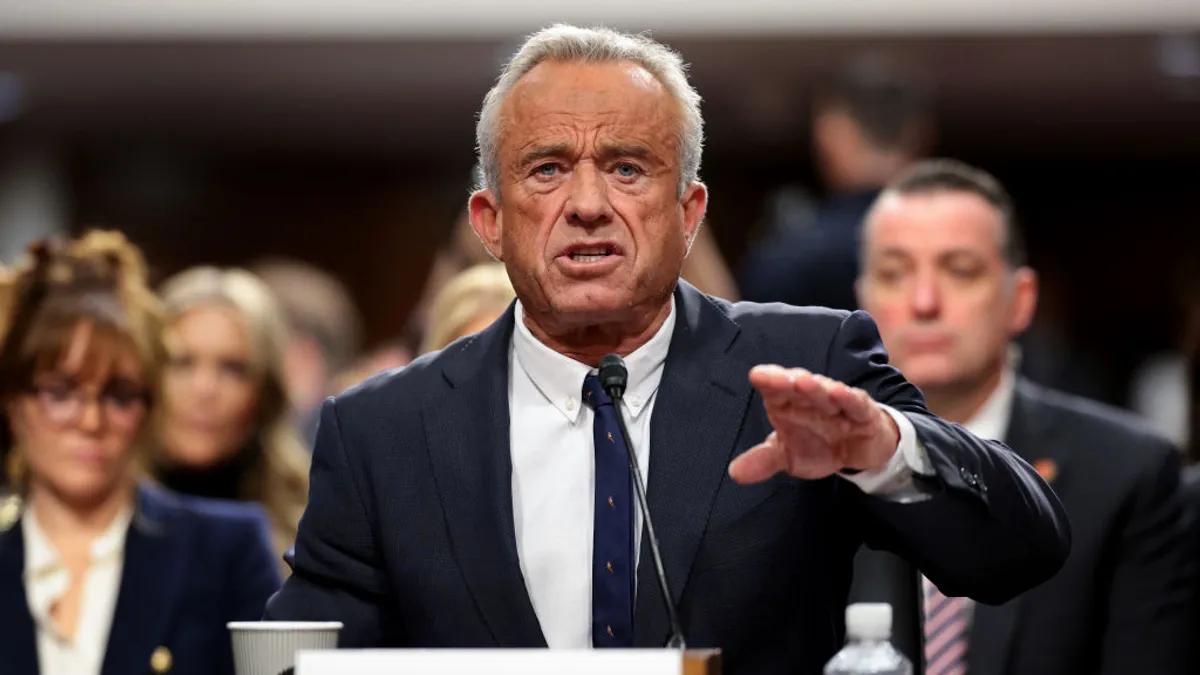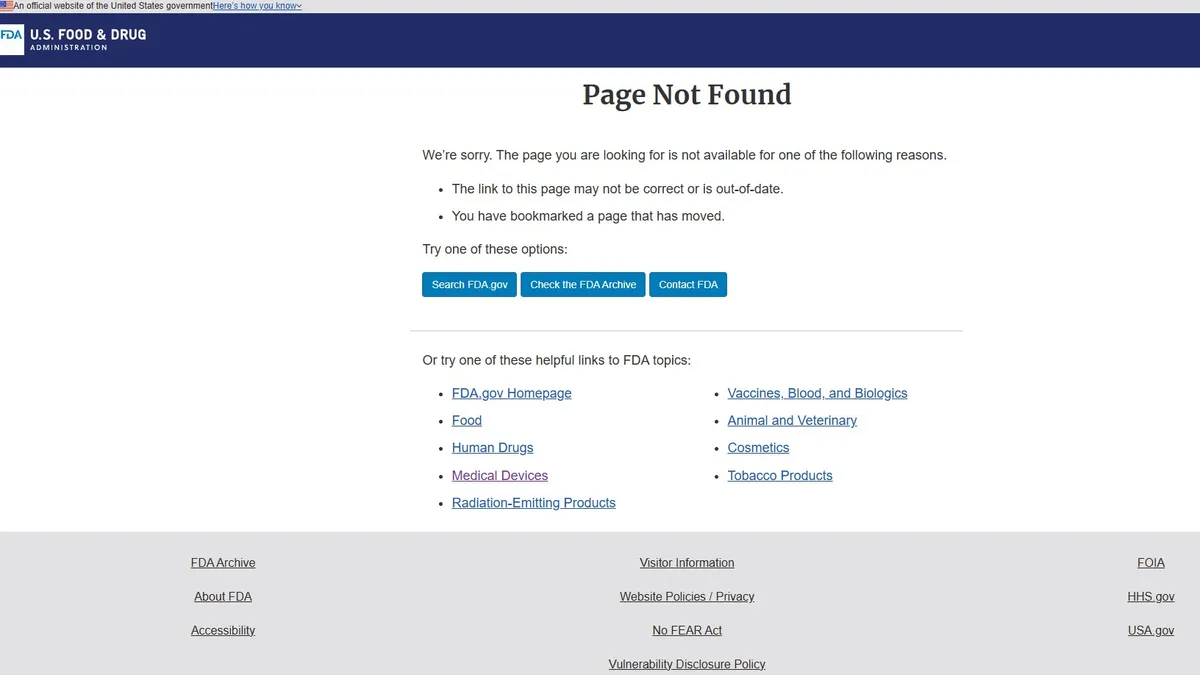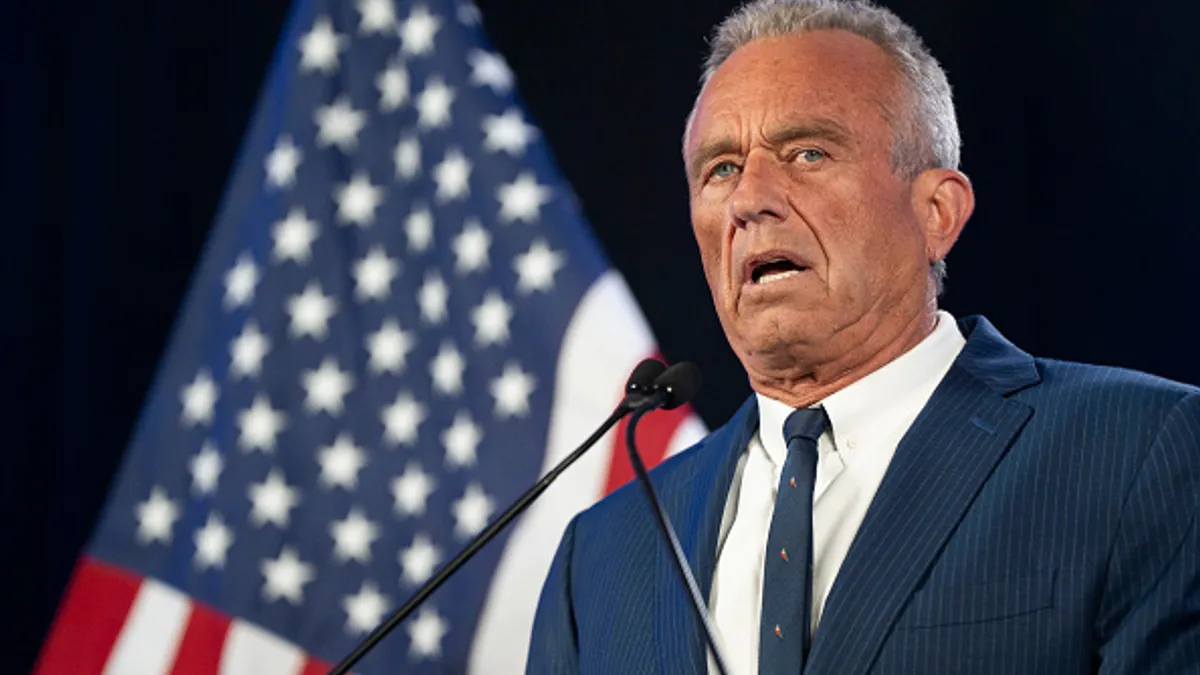The Food and Drug Administration on Monday expanded use of AstraZeneca and Daiichi Sankyo’s Enhertu, allowing the drug to be given earlier and more broadly in people with an aggressive form of breast cancer.
Since 2022, Enhertu has been approved in the U.S. to treat advanced breast tumors expressing “low,” but still detectable, levels of the HER2 protein. With its new decision, the agency widened Enhertu’s availability to include treatment of tumors with “ultralow” HER2 expression. HER2 protein levels must be determined by an FDA-approved test, AstraZeneca and Daiichi said in a statement.
The new approval positions Enhertu, an antibody-drug conjugate, or ADC, to be used before chemotherapy in people with low HER2-expressing tumors. Until now, Enhertu was available only for people whose cancer had progressed despite one or more hormone therapies as well as chemo. (The drug is also approved for use after HER2-targeted treatment in people with classically HER2 positive tumors.)
The approval “represents another paradigm shift in how certain breast cancers can be treated,” said Ken Keller, Daiichi Sankyo’s president and CEO, in a statement.
Enhertu, which delivers a toxin to tumor cells expressing HER2, has secured a series of approvals since AstraZeneca and Daiichi began collaborating five years ago. U.S. regulators have cleared it for use in breast, lung and gastric tumors. And it became the first ADC to win a pan-tumor OK, having been approved last year for use treating any solid tumor expressing HER2.
The approvals for HER2-low and, now, HER2-ultralow breast cancers are changing clinical practice, making it important for doctors to view expression beyond binary positive or negative terms.
For example, AstraZeneca estimates that as many as two-thirds of hormone receptor-positive breast cancers typically classified as negative for HER2 actually have low levels of the protein. The company has said another 20% to 25% may have “ultralow” HER2 expression.
“It is critical for patients to understand the HER2 status of their metastatic breast cancer to help them make informed treatment decisions,” said Krissa Smith, the vice president of education at the nonprofit group Susan G. Komen, in the statement provided by AstraZeneca and Daiichi.
Enhertu is part of AstraZeneca and Daiichi’s plan to prove ADCs can replace chemo in many tumor types. The company has six ADCs in clinical development, among them Datroway, which produced mixed results in testing but won its first U.S. approval in breast cancer this month.
“The key goal from this trial is to show the power of ADCs in truly replacing chemotherapy,” said Mohit Manrao, the senior vice president of AstraZeneca’s U.S. oncology division, in an interview last year. “We are seeing with this therapy, we can displace traditional chemotherapy and bring it earlier to the patients.”
Enhertu’s clearance was based on study results, published in The New England Journal of Medicine last September, showing that Enhertu delayed cancer progression or death by a median of 13.2 months, versus 8.1 months among those who received chemo. That equated to a 36% reduction in the risk of cancer progression for study participants treated with Enhertu.
Nearly identical results were observed in the smaller group of people with ultralow HER2 levels, though the study wasn’t powered to detect a statistical difference on that measure.
The study hasn’t run for long enough to prove whether Enhertu extends survival. At the time of data cut-off last year, treatment was associated with a roughly 17% reduction in the risk of death, which was not statistically significant. There were also higher rates of serious drug-related side effects in people who received Enhertu, among them a kind of lung scarring called interstitial lung disease. Although this side effect wasn’t serious in most, three patients died, study results showed.
AstraZeneca and Daiichi are evaluating Enhertu even earlier in HER2-positive breast cancer, with Phase 3 tests ongoing in the first-line setting as well as before or after surgical removal of a tumor. Results from all three trials are expected later this year.
Daiichi will receive a $175 million milestone payment from AstraZeneca as a result of Monday’s approval.























